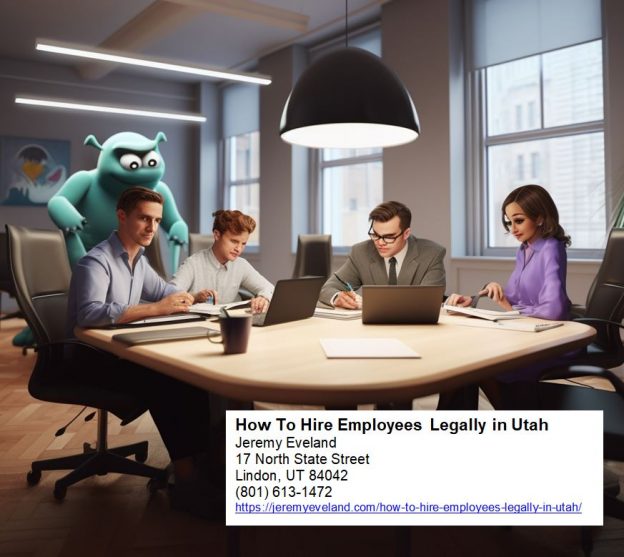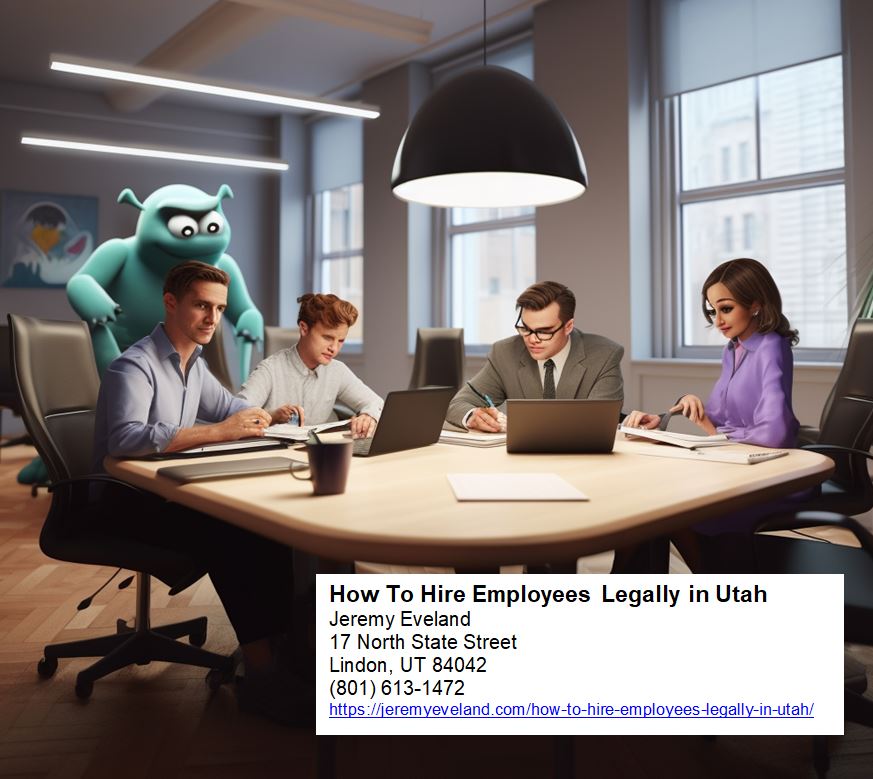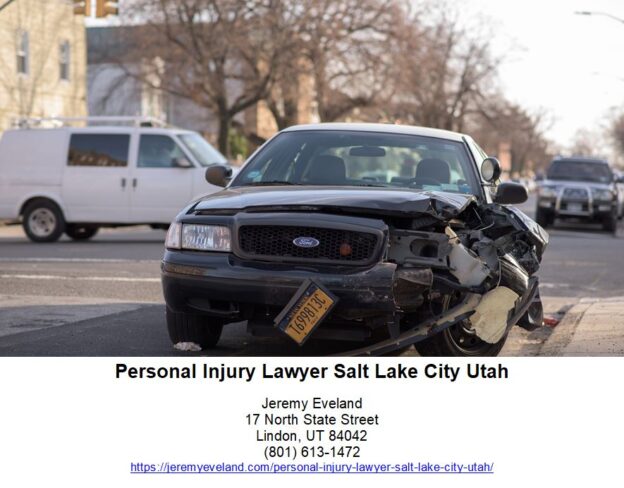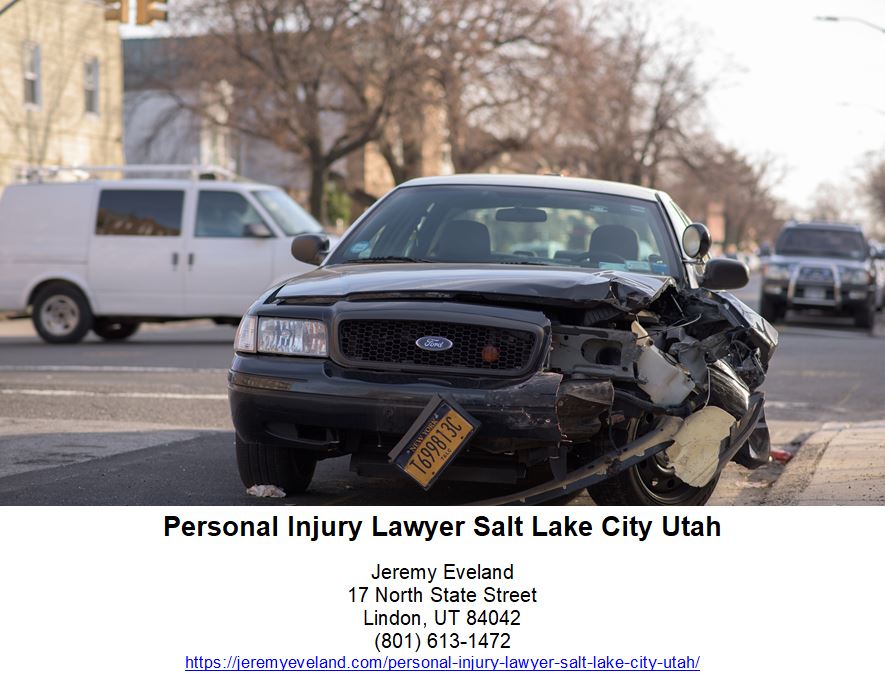Business Lawyer Grantsville Utah
Are you a business owner in Grantsville, Utah? Facing legal challenges can be overwhelming, but don't worry. Help is just around the corner. Introducing the Business Lawyer Grantsville Utah – your trusted partner in navigating the complex world of business law. With their extensive experience and expertise, they will provide you with sound advice and effective solutions to protect your interests and ensure compliance with all legal requirements. Don't let legal issues hold you back from achieving success. Let the Business Lawyer Grantsville Utah guide you every step of the way.
Key Takeaways
- Hiring a business lawyer in Grantsville, Utah can provide specialized knowledge and expertise in business law.
- Having a business lawyer can help identify and mitigate potential risks, protecting your interests and minimizing legal disputes.
- Understanding the legal history of Grantsville, Utah can provide valuable insights into the development of laws over time and the reasons behind legal principles and landmark cases.
- Businesses in Grantsville, Utah that have legal counsel are 50% less likely to fail, highlighting the importance of having a knowledgeable business lawyer.
Introduction to Business Lawyer Grantsville Utah
If you're looking for a business lawyer in Grantsville, Utah, you'll find that they specialize in providing legal assistance to entrepreneurs and small business owners. Hiring a business lawyer can provide numerous benefits and is of utmost importance when it comes to legal advice for your business. Here are three reasons why you should consider hiring a business lawyer:
-
Expertise: A business lawyer has specialized knowledge and expertise in the field of business law. They are well-versed in the intricacies of contracts, intellectual property rights, employment laws, and other legal aspects relevant to businesses. This expertise ensures that you receive accurate advice tailored to your specific needs.
-
Risk Mitigation: Running a business involves inherent risks, both legally and financially. A business lawyer can help identify potential risks and develop strategies to mitigate them effectively. By ensuring compliance with applicable laws and regulations, they help protect your interests and minimize the likelihood of costly legal disputes.
-
Peace of Mind: As a small business owner or entrepreneur, having peace of mind is crucial for focusing on growing your venture. With a knowledgeable business lawyer by your side, you can entrust complex legal matters to them while you concentrate on running your company confidently.
Transitioning into the subsequent section about 'legal history,' it is essential to understand how the role of a business lawyer has evolved over time as businesses have adapted to changing legal landscapes and societal norms without compromising their goals or values.
Legal History
You may be interested to know that understanding the legal history is essential for any individual seeking legal expertise. The history of law provides a foundation and context for the current legal system we have today. By studying the past, you can gain insights into how laws have developed over time, the reasons behind certain legal principles, and the impact of landmark legal cases.
The history of law dates back thousands of years and has evolved significantly throughout different civilizations and societies. From ancient Mesopotamia's Code of Hammurabi to the development of common law in England, each era has contributed to shaping our modern legal framework.
Landmark legal cases have played a crucial role in defining and interpreting laws. These cases often involve groundbreaking decisions that set precedents for future rulings. For example, Brown v. Board of Education marked a significant turning point in desegregation efforts in the United States by declaring racial segregation in public schools unconstitutional.
Understanding these landmark cases helps lawyers analyze complex legal issues with precision and clarity. By examining historical court decisions, lawyers can effectively argue their clients' cases by drawing on established principles from previous judgments.
As you delve deeper into the study of law, it becomes evident that comprehending its history is vital for developing a strong foundation in this field. It allows you to appreciate how laws have developed over time, recognize patterns and trends within legal systems, and navigate through complex legal challenges more effectively.
Now that you grasp the importance of understanding the history of law, let's move on to exploring key legal definitions that will further enhance your knowledge in this field…
Legal Definitions
To truly grasp the intricacies of the legal field, it's essential to familiarize yourself with key legal definitions. Legal terminology can often be complex and confusing, but having a clear understanding of these terms is crucial in navigating common legal issues.
One important term to know is "plaintiff," which refers to the person or party who brings a lawsuit. They are seeking a legal remedy for an alleged wrongdoing or harm caused by another individual or organization, known as the "defendant." Another significant term is "tort," which encompasses civil wrongs that result in harm or injury to someone. This includes negligence, intentional misconduct, and product liability.
Understanding the concept of "burden of proof" is also vital. In any legal case, the burden lies on one party to prove their claims or defenses. Typically, this falls on the plaintiff in a civil case and the prosecution in a criminal case. The standard of proof required varies depending on whether it's a civil or criminal matter.
Other key terms include "due process," which ensures fairness and procedural rights during legal proceedings; "breach of contract," which occurs when one party fails to uphold their obligations under an agreement; and "jurisdiction," referring to a court's authority over certain cases based on geographic location or subject matter.
By familiarizing yourself with these fundamental legal definitions, you will be better equipped to navigate common legal issues that may arise in your personal life or business ventures.
Now let's delve into some facts and statistics related to business law...
Facts and Statistics
Now let's explore some interesting facts and statistics related to the field of business law. Business law encompasses a wide range of legal issues that affect businesses and their operations. Understanding these facts and statistics can provide valuable insights into the benefits of having a knowledgeable business lawyer on your side.
Firstly, did you know that 60% of small businesses face legal issues each year? These can include contract disputes, intellectual property violations, employment disagreements, and more. Having a business lawyer who specializes in these areas can help protect your interests and ensure compliance with applicable laws.
Furthermore, hiring a business lawyer has been shown to increase the chances of business success. In fact, studies have found that businesses with legal counsel are 50% less likely to fail than those without. This is because lawyers can provide guidance on various aspects such as drafting contracts, navigating regulatory requirements, and resolving disputes effectively.
Another important fact about business law is that it is constantly evolving. With new laws being enacted and existing ones being amended regularly, staying up-to-date on legal changes can be challenging for any business owner. A skilled business lawyer has the knowledge and expertise to keep you informed about relevant changes that may impact your operations.
Tips
When it comes to running a successful business, there are three key points you need to consider: legal contract essentials, choosing the right business structure, and protecting your intellectual property. Legal contract essentials ensure that you have solid agreements in place with clients, vendors, and employees to protect your interests. Choosing the right business structure is crucial for determining your liability and tax obligations. Lastly, intellectual property protection is essential for safeguarding your unique ideas and creations. By focusing on these key points, you can set a strong foundation for your business's success.
Legal Contract Essentials
Make sure you understand the essential elements of a legal contract before signing anything. When it comes to contract negotiation and contract drafting, knowledge is power. Hiring a business lawyer in Grantsville, Utah can provide you with the expertise needed to navigate this complex process. They can help you negotiate favorable terms and ensure that all necessary provisions are included in the contract. From defining obligations and responsibilities to outlining payment terms and dispute resolution processes, a well-drafted contract sets clear expectations for both parties involved. Once you have a solid understanding of legal contracts, you can move on to the next important step: choosing a business structure that suits your needs.
Choosing a Business Structure
Once you understand the essential elements of a legal contract, you can begin selecting a business structure that suits your needs. Choosing the right business structure is crucial as it determines the legal and financial aspects of your business. There are several options to consider, such as sole proprietorship, partnership, limited liability company (LLC), and corporation. Each structure has its own advantages and disadvantages, so it's important to weigh the legal considerations before making a decision.
For example, if you want full control over your business and don't mind being personally liable for any debts or liabilities, a sole proprietorship may be suitable. On the other hand, if you're looking for limited personal liability protection and flexibility in management, an LLC might be more appropriate.
Understanding the legal implications associated with each business structure will help ensure that you make an informed decision that aligns with your goals and protects your interests. With this knowledge in hand, you can confidently move forward in establishing your business.
Now that you have determined the ideal business structure for your venture based on legal considerations, let's explore another critical aspect: intellectual property protection.
Intellectual Property Protection
Now that you've chosen the ideal business structure, it's important to understand how intellectual property protection can safeguard your innovations and creations. Intellectual property (IP) refers to intangible assets such as inventions, designs, trademarks, and copyrights. These valuable assets are vulnerable to IP infringement, where someone unlawfully uses or copies your ideas without permission. To prevent this from happening, trademark registration is crucial. Registering a trademark grants you exclusive rights to use and protect your brand name or logo, ensuring that others cannot profit from your hard work. By securing intellectual property rights through proper registration, you can defend against unauthorized use and seek legal recourse if necessary. Protecting your IP is an essential step in building a successful business.
Now that you understand the importance of intellectual property protection for safeguarding your business, it's time to consider the traits of a reliable business lawyer in Grantsville, Utah who can guide you through legal matters effectively and efficiently.
Traits of a Business Lawyer Grantsville Utah
When hiring a business lawyer in Grantsville, Utah, you'll want to ensure they possess the necessary traits and skills. A successful business lawyer should have excellent communication skills, both written and verbal. They must be able to clearly articulate complex legal concepts and negotiate effectively on your behalf. Additionally, a business lawyer should have strong analytical and problem-solving abilities. They need to be able to analyze intricate legal issues and develop strategic solutions that align with your business goals.
Another important trait of a good business lawyer is attention to detail. They must pay careful attention to contracts, agreements, and legal documents to ensure accuracy and protect your interests. In addition, a successful lawyer should be highly organized and capable of managing multiple cases simultaneously.
Furthermore, a reliable business lawyer should possess strong negotiation skills. They will often find themselves in situations where they need to advocate for your best interests during negotiations or dispute resolutions. A skilled negotiator can help you achieve favorable outcomes while maintaining professional relationships.
Lastly, it is crucial for a business lawyer in Grantsville, Utah to have knowledge about local laws and regulations specific to the region. Understanding the local legal landscape enables them to navigate any potential challenges more efficiently.
By considering these essential traits when hiring a business lawyer in Grantsville, Utah, you can ensure that you are selecting someone who possesses the necessary skills for your specific needs.
Now that you understand what traits are important in a business lawyer, let's move on to the next section where we will discuss the steps involved in hiring one in Grantsville, Utah.
Steps to Hire a Business Lawyer Grantsville Utah
Before hiring a business lawyer in Grantsville, Utah, it's important to understand the steps involved in the process. By following these steps and considering important factors, you can ensure that you find the right legal professional for your business needs.
-
Research: Begin by conducting thorough research to identify potential business lawyers in Grantsville, Utah. Look for attorneys who specialize in business law and have experience working with businesses similar to yours. Consider their reputation, client reviews, and track record of success.
-
Consultation: Schedule consultations with a few selected lawyers to discuss your specific legal needs and determine if they are a good fit for your business. During these meetings, ask about their experience, expertise, and approach to handling cases similar to yours. This will give you an opportunity to assess their communication style and determine if you feel comfortable working with them.
-
Fee Structure: Inquire about the lawyer's fee structure during the consultation. Understand how they bill for their services – whether it's an hourly rate or a flat fee – as well as any additional costs or expenses you may be responsible for.
By following these steps and considering important factors such as reputation, expertise, communication style, and fees, you can make an informed decision when hiring a business lawyer in Grantsville, Utah.
Transitioning into the subsequent section about 'goals {table}', it is crucial to align your goals with those of your chosen attorney.
Goals
To ensure a successful partnership with your chosen attorney, it's essential that you align your goals with theirs. When seeking the assistance of a business lawyer in Grantsville, Utah, it's important to have a clear understanding of what you hope to achieve. By setting specific goals and communicating them effectively, you can ensure that both you and your attorney are on the same page and working towards a common objective.
Here are some tips for setting goals when working with a business lawyer:
| Tips for Setting Goals | Benefits |
|---|---|
| Clearly define your objectives | Helps your attorney understand what you want to accomplish |
| Be realistic | Ensures that your goals are attainable within the legal framework |
| Prioritize your goals | Allows you and your attorney to focus on the most important tasks first |
| Establish measurable milestones | Provides a way to track progress and evaluate success |
| Maintain open communication with your attorney | Allows for adjustments or changes as needed throughout the process |
By following these tips, you can establish a strong foundation for collaboration with your business lawyer in Grantsville, Utah. Aligning your goals will help facilitate effective communication and ensure that both parties are working towards achieving desired outcomes.
Transitioning into the subsequent section about habits for business lawyers in Grantsville, Utah: Developing positive habits is crucial for any professional. Business lawyers in Grantsville, Utah must cultivate certain traits and practices to excel in their field while providing exceptional service to their clients.
Habits for Business Lawyers Grantsville Utah
Developing positive habits is crucial for any professional in the field, and as a business lawyer in Grantsville, Utah, you must cultivate certain traits and practices to excel while providing exceptional service to your clients. One important aspect of being a successful business lawyer is understanding the importance of effective marketing. In today's competitive market, it is essential to promote your services and establish a strong online presence. Utilize social media platforms, create informative blog posts about common legal issues faced by businesses, and engage with potential clients through networking events.
Additionally, staying organized is key in managing multiple cases simultaneously. Develop a system that allows you to keep track of deadlines, client meetings, and court appearances. This will not only help you stay on top of your workload but also ensure that no details slip through the cracks.
Another habit worth cultivating is continuous learning. The legal landscape is constantly evolving, so it's important to stay up-to-date with new laws and regulations that may impact your clients' businesses. Attend seminars or webinars related to business law and join professional organizations to expand your knowledge base.
Lastly, always prioritize excellent communication skills. Building trust with your clients requires clear and concise communication throughout every step of their legal journey. Be responsive to their needs and provide regular updates on case progress.
By developing these positive habits as a business lawyer in Grantsville, Utah, you will position yourself for success in this competitive industry.
Transitioning into the subsequent section about 'stories to learn from,' there are numerous real-life experiences shared by seasoned professionals that offer valuable lessons for aspiring business lawyers like yourself.
Stories to Learn From
While reading stories from seasoned professionals, you can gain valuable insights and lessons as an aspiring business lawyer in Grantsville, Utah. Learning from the experiences of others is a powerful way to avoid common legal mistakes and achieve success in your own career.
Business lawyer success stories are filled with valuable nuggets of wisdom that can guide you on your path to becoming a successful attorney. These stories often highlight the importance of thorough research, effective communication, and strong negotiation skills. By studying these success stories, you can learn how to navigate complex legal issues and provide the best possible solutions for your clients.
One common legal mistake that many business lawyers encounter is failing to understand their clients' needs fully. Successful lawyers emphasize the significance of building strong relationships with clients and taking the time to truly understand their goals and objectives. By doing so, they are able to provide tailored legal advice and representation that aligns with their clients' interests.
Another frequent misstep is failing to stay updated on changes in laws and regulations relevant to their practice areas. Business lawyers who prioritize continuous learning are better equipped to adapt to new challenges and deliver high-quality services.
By immersing yourself in business lawyer success stories, you will gain invaluable knowledge about what it takes to succeed in this competitive field. Remember, success leaves clues – pay attention not only to the victories but also the setbacks faced by these professionals. Use these lessons as stepping stones toward your own achievements as a business lawyer in Grantsville, Utah.
Now let's dive into some inspiring quotes from prominent business lawyers that will motivate you on your journey towards excellence.
Quotes
Reading inspiring quotes from seasoned professionals can provide the motivation and guidance you need on your journey towards excellence as a business lawyer. As a business lawyer, you understand the importance of staying ahead in a competitive industry. Seeking legal advice and gaining insights from those who have paved the way before you is crucial for your success.
The benefits of reading quotes from experienced business lawyers are numerous. Firstly, these quotes can offer valuable insights into various aspects of the legal profession, such as negotiation skills, client management, or courtroom strategies. By learning from their experiences and wisdom, you can avoid common pitfalls and make informed decisions.
Furthermore, inspirational quotes can serve as reminders during challenging times. They can uplift your spirits when faced with difficult cases or stressful situations. These words of wisdom act as a source of encouragement to persevere and stay focused on achieving excellence in your field.
Quotes also have the power to inspire creativity and innovation in your practice. They can spark new ideas or provide alternative perspectives that may lead to breakthroughs in your approach to solving complex legal issues. By expanding your mindset through these quotes, you enhance your ability to think critically and find innovative solutions for your clients.
Secrets
One secret successful business lawyers employ to enhance their practice is the power of networking. Building a strong professional network can open doors to new clients, referrals, and valuable insights. Networking allows you to connect with other professionals in your field, exchange ideas, and stay updated on industry trends. By attending conferences, seminars, and legal events, you can meet potential clients and establish meaningful relationships.
Here are some tips to help you make the most out of your networking efforts:
-
Be proactive: Take the initiative to reach out to fellow lawyers, attend networking events, and join relevant professional associations. Don't wait for opportunities to come knocking at your door.
-
Be genuine: When interacting with others, be authentic and show a genuine interest in their work. Building trust is crucial in establishing lasting connections.
-
Be a resource: Share your knowledge and expertise freely with others in your network. Offer advice or assistance whenever possible. This will position you as a valuable resource within your industry.
-
Use social media wisely: Utilize platforms like LinkedIn to expand your network beyond traditional face-to-face interactions. Engage with others by commenting on posts or sharing insightful content related to your field.
Networking opens up endless possibilities for business lawyers seeking growth and success in Grantsville Utah's competitive legal landscape. By implementing these secrets into your practice, you can build a strong network that will support and propel your career forward without hesitation.
Insights for Business Lawyers Grantsville Utah
Building a strong professional network is essential for success in the competitive legal landscape of Grantsville, Utah. As a business lawyer in this thriving community, you need to possess certain qualifications to effectively navigate the legal challenges that business owners face.
First and foremost, you must have a solid understanding of business law and how it applies to different industries. This knowledge will enable you to provide accurate and reliable advice to your clients regarding contracts, intellectual property, employment matters, and other legal issues that may arise in the course of their operations.
In addition to legal expertise, effective communication skills are crucial. As a business lawyer, you will be responsible for negotiating agreements on behalf of your clients and representing them in court if necessary. Being able to clearly articulate complex legal concepts and advocate for your client's best interests will set you apart from the competition.
Furthermore, being well-versed in local regulations and ordinances specific to Grantsville is advantageous. Each jurisdiction has its own set of rules governing businesses, and staying up-to-date with these changes allows you to provide comprehensive advice tailored specifically to your clients' needs.
By fulfilling these qualifications as a business lawyer in Grantsville, Utah, you can offer valuable insights and guidance that help businesses overcome their legal challenges with confidence. From ensuring compliance with state laws to resolving disputes efficiently, having an experienced business lawyer by their side grants entrepreneurs peace of mind as they focus on growing their ventures.
Transitioning into the subsequent section about the benefits of hiring a business lawyer in Grantsville without using the word 'step', it becomes evident that partnering with an attorney who understands the local laws can greatly benefit business owners looking for expert guidance when navigating complex legal matters.
Benefits of Hiring a Business Lawyer Grantsville Utah
When seeking expert guidance for navigating complex legal matters in Grantsville, Utah, you'll find that hiring a knowledgeable attorney is greatly beneficial. A business lawyer in Grantsville can provide you with numerous benefits and advantages that will protect your interests and help your business thrive.
One of the major benefits of hiring a business lawyer is their expertise in handling legal issues specific to the business world. They have extensive knowledge of contract law, intellectual property rights, employment law, and other areas that are crucial for running a successful business. With their guidance, you can avoid costly mistakes and ensure compliance with all relevant laws and regulations.
Another advantage of having a business lawyer on your side is their ability to anticipate potential problems before they arise. By conducting thorough risk assessments and reviewing contracts, they can identify any potential legal pitfalls or liabilities that could negatively impact your business. This proactive approach allows you to address these issues proactively and minimize the chances of facing expensive lawsuits or disputes.
Additionally, a skilled business lawyer can also provide valuable advice on strategic decision-making. They can help you structure your company in the most advantageous way, assist with mergers and acquisitions, negotiate favorable contracts, and navigate complex tax laws. Their expertise will enable you to make well-informed decisions that maximize profitability while minimizing legal risks.
In conclusion, hiring a knowledgeable business lawyer in Grantsville offers numerous benefits and advantages for your company. From ensuring compliance with laws to mitigating risks and providing strategic advice – their expertise will prove invaluable as you navigate the complexities of running a successful business.
Transitioning into the subsequent section about 'lessons', it's important to understand that even with expert legal guidance by your side, there may still be lessons to learn along the way when dealing with complex legal matters in Grantsville.
Lessons
When it comes to running a business, there are several legal pitfalls that you need to be aware of and avoid. These could include issues such as intellectual property infringement or violation of employment laws. It is crucial to include essential contract clauses in all your agreements to protect your interests and minimize potential disputes. Seeking legal advice from a professional can play a vital role in navigating these legal complexities and ensuring the long-term success of your business.
Legal Pitfalls to Avoid
To avoid legal pitfalls, you should consult with a business lawyer in Grantsville, Utah. Legal challenges can arise at any point in your business journey and failing to address them properly can have serious consequences. Common pitfalls include issues related to contracts, intellectual property, employment law, and regulatory compliance. Without proper legal guidance, you may unknowingly enter into agreements that are not favorable or fail to protect your intellectual property rights. Employment law violations could also lead to costly lawsuits and damage your reputation. Additionally, navigating the complex web of regulations without expert advice can result in hefty fines or even the closure of your business. By consulting with a skilled business lawyer, you can identify and mitigate these potential pitfalls before they become major problems.
Transitioning into the subsequent section about 'essential contract clauses,' it is crucial to understand that having well-drafted contracts is essential for protecting your interests as a business owner.
Essential Contract Clauses
Having well-drafted contracts is crucial for protecting your interests as a business owner. When engaging in contract negotiation or contract drafting, it is essential to include certain clauses that can safeguard your rights and prevent potential disputes. First and foremost, clearly define the scope of work or services being provided, ensuring that both parties have a mutual understanding. Additionally, include provisions for payment terms, deadlines, and any penalties for non-compliance. Confidentiality and non-disclosure clauses are also important to protect sensitive information shared during the course of the agreement. Finally, consider including dispute resolution mechanisms such as arbitration or mediation to settle any conflicts amicably.
Transitioning into the importance of legal advice: While drafting these essential contract clauses may seem straightforward, it is wise to seek professional legal advice to ensure that all aspects of your agreement are properly addressed and enforceable.
Importance of Legal Advice
If you want to protect your interests and ensure that all aspects of your agreement are properly addressed and enforceable, it's essential to seek professional legal advice. The importance of legal representation cannot be overstated when it comes to navigating the complexities of business contracts. A skilled business lawyer in Grantsville, Utah can provide you with invaluable guidance and expertise throughout the process. They have a deep understanding of contract law and can help you draft agreements that accurately reflect your intentions while also protecting your rights. By seeking legal advice, you can avoid potential pitfalls and minimize the risk of disputes or litigation down the line. The benefits of legal advice extend beyond just contract drafting – lawyers can also assist with negotiations, review existing agreements, and provide overall strategic counsel for your business. With their help, you can make informed decisions and secure favorable outcomes for your company.
Transition: Now that you understand the importance of legal advice in safeguarding your interests, let's explore how establishing routines can further enhance your business operations.
Routines
When it comes to routines, you need to establish a consistent schedule for your business tasks. Daily routines are crucial for effective time management in your business. By implementing a routine, you can prioritize your tasks and ensure that everything gets done efficiently.
To start, create a detailed plan for each day. Identify the most important tasks that need to be completed and allocate specific time slots for them. This will help you stay focused and avoid wasting time on less important activities.
Furthermore, establishing a routine allows you to develop good habits and increase productivity. When certain tasks become part of your daily routine, they require less mental effort and become second nature. This saves valuable time and energy that can be channeled into other important aspects of your business.
Consistency is key when it comes to routines. Stick to the schedule you have set for yourself as much as possible. However, remain flexible enough to adapt if unexpected circumstances arise. Remember that the purpose of establishing a routine is not to restrict yourself but rather to provide structure and efficiency.
In conclusion, incorporating daily routines into your business practices is essential for effective time management. It helps prioritize tasks, increases productivity through habit formation, and provides structure without restricting flexibility. By establishing a consistent schedule, you can optimize your workflow and achieve better results in your business endeavors.
Now let's explore the pros and cons of implementing routines in more detail…
Pros and Cons
One of the advantages of implementing routines is that they can help improve productivity and time management. Routines provide structure and organization, allowing you to focus on your priorities and avoid wasting time on unnecessary tasks. By establishing a regular schedule, you can develop efficient habits that contribute to increased efficiency in your work.
However, it's important to consider both the pros and cons of implementing routines. On one hand, routines offer numerous benefits such as improved productivity, reduced stress levels, and enhanced overall performance. They enable you to create a sense of stability and predictability in your daily life, making it easier to manage your time effectively.
On the other hand, there are drawbacks to relying too heavily on routines. They can become monotonous and hinder creativity or flexibility in problem-solving situations. Additionally, following a strict routine may limit your ability to adapt to unexpected changes or opportunities that arise.
Despite these potential drawbacks, incorporating routines into your life can still be highly beneficial when balanced with flexibility. Finding the right balance will allow you to enjoy the benefits of having a structured schedule while also being open to new possibilities.
Now that we've explored the pros and cons of implementing routines, let's move on to discussing some dos and don'ts in creating effective routines for improved productivity and time management.
Dos and Dont's
Let's start by discussing some dos and don'ts in creating effective routines for improved productivity and time management. When it comes to managing your time effectively, it's important to establish a routine that works best for you. Here are some key do's and don'ts to keep in mind:
| Dos | Don'ts | Benefits |
|---|---|---|
| Set clear goals | Procrastinate | Increased focus |
| Prioritize tasks | Overcommit | Better time management |
| Create a schedule | Multitask | Reduced stress |
| Take breaks | Neglect self-care | Improved work-life balance |
Setting clear goals is essential for staying on track and achieving what needs to be done. Prioritizing tasks helps you focus on the most important ones first, ensuring you make efficient use of your time. Creating a schedule provides structure and helps prevent wasting valuable minutes deciding what to do next. Taking regular breaks allows your brain to recharge, leading to increased productivity.
On the other hand, there are several common legal mistakes that should be avoided when creating routines. These mistakes can have serious consequences for your business. It is important not to overlook legal obligations such as permits or licenses required for certain activities. Failing to properly document agreements or contracts can leave you vulnerable if disputes arise. Additionally, neglecting intellectual property rights could lead to costly legal battles down the line.
Mistakes to Avoid
Avoid overlooking legal obligations such as permits or licenses required for certain activities to protect your business interests. When it comes to running a business, there are common mistakes that can lead to legal challenges if not properly addressed. One of these mistakes is failing to obtain the necessary permits or licenses for your operations.
Operating without the proper permits or licenses can result in hefty fines, lawsuits, and even the shutdown of your business. It is crucial to research and understand the specific permits and licenses needed for your industry and location. This may include zoning permits, health department approvals, liquor licenses, or professional certifications.
Another common mistake is neglecting to have written contracts or agreements in place. Verbal agreements may seem convenient at first but can lead to misunderstandings and disputes down the line. Having clear written contracts helps protect both parties involved and ensures that everyone understands their rights and responsibilities.
Additionally, failing to comply with employment laws can also pose legal challenges for your business. This includes properly classifying employees versus independent contractors, adhering to minimum wage laws, providing a safe working environment, and following anti-discrimination regulations.
In conclusion, avoiding these common mistakes will help you navigate potential legal challenges more effectively. By obtaining the necessary permits and licenses, using written contracts, and complying with employment laws, you protect your business from unnecessary risks and ensure its long-term success.
Now that we have discussed the mistakes to avoid when it comes to legal obligations in running a business let's move on to key takeaways that will help you better manage these challenges.
Key Takeaways
To summarize, it is essential to understand and comply with legal obligations to protect your business from potential risks and ensure long-term success. When it comes to hiring a business lawyer in Grantsville, Utah, there are some key takeaways and important considerations you should keep in mind.
Firstly, having a business lawyer by your side can provide invaluable guidance and support throughout the life of your business. They have the expertise and knowledge to navigate complex legal matters, such as contracts, intellectual property rights, employment law, and compliance issues. By working closely with a skilled attorney who understands the local laws and regulations specific to Grantsville, you can ensure that your business stays on the right side of the law.
Secondly, when selecting a business lawyer in Grantsville, Utah, it is crucial to find someone who specializes in your industry or has experience dealing with businesses similar to yours. This ensures that they have a deep understanding of the unique challenges you may face and can provide tailored advice that aligns with your specific needs.
Lastly, establishing a strong working relationship with your business lawyer is vital for long-term success. Regular communication and collaboration will allow them to stay up-to-date on any changes or developments within your company so they can offer proactive legal guidance.
Specific Action Steps for Hiring a Business Lawyer Grantsville Utah
When hiring a business lawyer in Grantsville, Utah, there are several key points to consider. First, you need to determine the essential criteria for your potential lawyer, such as their experience in business law and their knowledge of local regulations. Second, it is important to discuss cost and payment options upfront to ensure that you can afford their services. Finally, communication and availability should be priorities so that you can easily reach your lawyer when needed.
Essential Hiring Criteria
One essential hiring criterion is having strong communication skills. When looking for a business lawyer in Grantsville, Utah, there are several traits to look for and questions to ask to ensure they possess this crucial skill. You want someone who can effectively articulate complex legal concepts in a clear and concise manner. Ask them about their experience communicating with clients, opposing counsel, and judges. Inquire about how they handle difficult conversations or negotiations. A lawyer with strong communication skills will be able to understand your needs, explain legal matters in plain language, and keep you informed throughout the process. This level of clarity and transparency is vital when dealing with legal issues that can have significant consequences for your business.
Transitioning into the subsequent section on cost and payment options, it's important to consider not only the lawyer's communication skills but also the financial aspect of hiring their services.
Cost and Payment Options
Considering the financial aspect, it's crucial to explore the cost options and payment methods when hiring legal services. Hiring a business lawyer in Grantsville, Utah can be a significant investment for your company, so it's important to understand the potential costs involved. When discussing fees with potential lawyers, inquire about their billing structure and whether they charge an hourly rate or offer flat fees for specific services. Additionally, ask about any additional expenses that may arise during the course of your case. In terms of payment methods, most lawyers accept various forms such as cash, checks, credit cards, or even online payments. Some may also offer flexible payment plans or contingency fee arrangements where you only pay if they win your case. By understanding these cost options and payment methods, you can make an informed decision that aligns with your budget and financial goals.
Transitioning into the subsequent section about 'communication and availability,' it is equally important to consider how accessible a business lawyer will be throughout your legal proceedings without compromising on quality representation.
Communication and Availability
It's crucial to ensure that the business attorney you hire is easily accessible and available throughout your legal proceedings. Effective client communication and legal representation availability are vital for a successful partnership with your lawyer. When dealing with complex legal matters, you need an attorney who will promptly respond to your inquiries, keep you informed of any updates, and address any concerns or questions you may have. A lawyer who prioritizes open communication will provide reassurance during stressful times and help you make informed decisions. Additionally, the availability of your attorney is essential to ensure that they can dedicate sufficient time and attention to your case. By choosing a lawyer who values client communication and maintains high availability, you can have confidence in their commitment to providing excellent legal representation.
Frequently Asked Questions
What Are the Typical Fees Associated With Hiring a Business Lawyer in Grantsville, Utah?
When hiring a business lawyer in Grantsville, Utah, it's important to consider the typical fees associated with their services. Additionally, they can help resolve your business legal issues efficiently and effectively.
How Long Does It Usually Take to Resolve a Business Legal Issue With the Help of a Lawyer in Grantsville, Utah?
On average, it takes a business lawyer in Grantsville, Utah a certain amount of time to resolve a business legal issue. However, there may be common challenges that can affect the resolution process.
Are There Any Specific Regulations or Laws That Business Lawyers in Grantsville, Utah Need to Be Well-Versed In?
When hiring a business lawyer in Grantsville, Utah, it's essential to find someone well-versed in the specific regulations and laws that apply to your industry. From contract drafting to negotiation, their expertise can ensure a smooth resolution of any business legal issue.
Can a Business Lawyer in Grantsville, Utah Handle Legal Issues for Businesses in Different Industries?
Yes, a business lawyer in Grantsville, Utah can handle legal issues for businesses in different industries. With their specialization and expertise, they provide valuable legal support for startups and ensure compliance with industry-specific regulations.
How Can a Business Lawyer in Grantsville, Utah Help With Contract Drafting and Negotiation?
A business lawyer in Grantsville, Utah can help you with contract drafting and negotiation. They will ensure that the terms are favorable to your business and compliant with regulations. Their fees depend on the complexity of the contract and their resolution time is efficient. They have experience working with various industries.
Areas We Serve
We serve individuals and businesses in the following locations:
Salt Lake City Utah
West Valley City Utah
Provo Utah
West Jordan Utah
Orem Utah
Sandy Utah
Ogden Utah
St. George Utah
Layton Utah
South Jordan Utah
Lehi Utah
Millcreek Utah
Taylorsville Utah
Logan Utah
Murray Utah
Draper Utah
Bountiful Utah
Riverton Utah
Herriman Utah
Spanish Fork Utah
Roy Utah
Pleasant Grove Utah
Kearns Utah
Tooele Utah
Cottonwood Heights Utah
Midvale Utah
Springville Utah
Eagle Mountain Utah
Cedar City Utah
Kaysville Utah
Clearfield Utah
Holladay Utah
American Fork Utah
Syracuse Utah
Saratoga Springs Utah
Magna Utah
Washington Utah
South Salt Lake Utah
Farmington Utah
Clinton Utah
North Salt Lake Utah
Payson Utah
North Ogden Utah
Brigham City Utah
Highland Utah
Centerville Utah
Hurricane Utah
South Ogden Utah
Heber Utah
West Haven Utah
Bluffdale Utah
Santaquin Utah
Smithfield Utah
Woods Cross Utah
Grantsville Utah
Lindon Utah
North Logan Utah
West Point Utah
Vernal Utah
Alpine Utah
Cedar Hills Utah
Pleasant View Utah
Mapleton Utah
Stansbury Par Utah
Washington Terrace Utah
Riverdale Utah
Hooper Utah
Tremonton Utah
Ivins Utah
Park City Utah
Price Utah
Hyrum Utah
Summit Park Utah
Salem Utah
Richfield Utah
Santa Clara Utah
Providence Utah
South Weber Utah
Vineyard Utah
Ephraim Utah
Roosevelt Utah
Farr West Utah
Plain City Utah
Nibley Utah
Enoch Utah
Harrisville Utah
Snyderville Utah
Fruit Heights Utah
Nephi Utah
White City Utah
West Bountiful Utah
Sunset Utah
Moab Utah
Midway Utah
Perry Utah
Kanab Utah
Hyde Park Utah
Silver Summit Utah
La Verkin Utah
Morgan Utah
Grantsville UT Business Attorney Consultation
When you need help from an attorney who can help with business law in Grantsville, call Jeremy D. Eveland, MBA, JD (801) 613-1472 for a consultation.
Jeremy Eveland
17 North State Street
Lindon UT 84042
(801) 613-1472
Related Posts
Understanding Utah’s Labor Laws
Business Lawyer North Salt Lake Utah
Product Liability Laws in Utah
Preventing Cybersecurity Breaches
Business Lawyer North Ogden Utah
Business Lawyer Brigham City Utah
Mastering Business Law: Key Essentials For Success
Business Lawyer Centerville Utah
Shareholder Agreements in Utah
Business Lawyer Hurricane Utah
Business Lawyer South Ogden Utah
Last Will and Testament Lawyer
Business Lawyer Heber City Utah
Business Lawyer Hurricane Utah
Business Lawyer West Haven Utah
Do I Need A License To Start A Business?
Business Lawyer Bluffdale Utah
Business Lawyer Santaquin Utah
Legal Implications of Cryptocurrency in Business Transactions
Business Lawyer Smithfield Utah
Structuring A Flow Through Entity
Business Lawyer Woods Cross Utah
Business Lawyer Grantsville Utah
[geocentric_weather id=”93105e3b-56f5-4393-95c4-3f188b9b4c93″]
[geocentric_about id=”93105e3b-56f5-4393-95c4-3f188b9b4c93″]
[geocentric_neighborhoods id=”93105e3b-56f5-4393-95c4-3f188b9b4c93″]
[geocentric_thingstodo id=”93105e3b-56f5-4393-95c4-3f188b9b4c93″]
[geocentric_busstops id=”93105e3b-56f5-4393-95c4-3f188b9b4c93″]
[geocentric_mapembed id=”93105e3b-56f5-4393-95c4-3f188b9b4c93″]
[geocentric_drivingdirections id=”93105e3b-56f5-4393-95c4-3f188b9b4c93″]
[geocentric_reviews id=”93105e3b-56f5-4393-95c4-3f188b9b4c93″]





















